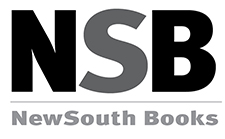I, like fourteen billion other people, was distressed when the New York Herald Tribune folded. Even then, in 1966, I think we knew “The Blob” was moving in our direction. More accurately, my hero Thomas Wolfe would have called it an “inexorable” Blob, but, just as descriptively, it is an unstoppable, cheapening wave of lesserness in our ‚Äòbrave new world‚Äô of more.‚Äù
Indeed, the change ‚Äì The Blob ‚Äì is no longer just at the city limits; it is on our doorsteps, and now we may begin to see ourselves as inhabitants of a world in which the familiar is vanishing — newspapers turning into billboards or simply going under, mom and pop businesses smothered, and on a larger scale: the flora and fauna of the planet not showing up for work on a daily basis. The horror is not one of collapse; it‚Äôs an inundation by shallowness. And, finally, when there are no more newspapers, no more books and magazines, and everything is entirely electronic . . . the lights will go out. Then, just as it was in A.D. 476 when the last ineffectual Roman Emperor — Romulus Augustulus — bit the historic dust . . . the barbarian kingdoms will arise.
In drafting the brief response above last week to the May 2, 2007 New York Times article “Are Book Reviewers Out of Print?” by Motoko Rich, that first pop was so dark I scared myself until I remembered my persona — namely, that I always behave as though I am Don Quixote, the noble fool who will, with a smile and cup of coffee, face Tsunamis with an inner tube. I am certain this terrible change, bad as it is, cannot entirely snuff out the love and rush of the printed word. However, the currently accelerated crumpling of journals is the shape of a future, and, as such, it is what James Joyce could have meant — if he had known to mean it — when he wrote that wonderful phrase: “the ineluctable modality of the visible.”
I loved Richard Ford‚Äôs comment in the sixth graph of the article: That reviews could be continued in some newspapers [e.g., the Atlanta Journal-Constitution] “as a public service, and the fact of the matter is they are unwilling to.” Apart from a mere denunciation, his observation largely articulates the shallow, profit-driven nature of this so-called change, this ‚Äúcultural lessening‚Äù that may signify the second End of Western Civilization — I have to give credit for the idea of that dark hyperbole to Memphis‚Äôs Fredric Koeppel (of the Commercial Appeal) because he said, once, nearly twenty years ago, in the grocery store: “First the comma, then Western Civilization!”
Also, Ford’s thoughts concerning newspapers as opposed to blogs, in the last graph of the piece, were excellent as well. He may be becoming a giant.
What Melissa Faye Greene has to say is powerful, too. In graph twenty she declares: “With the removal of the cultural critics, Atlanta is surrendering again . . . We all lose, you know, not just Atlantans, with the disappearance from the scene of a literate intelligence.”
FACED WITH THIS THREATENING INEVITABILITY, we, you and I and those of our tribe — the writers and publishers — will of course try to make bouillabaisse out of the seemingly unstoppable “Blob” and not let it make hash out of us.
The most wretched aspect of some changes is that we may know they are not good, but we also know that, later on, those-not-us will begin to admire the destruction, and after a while the changes that were indeed never good in the first place will somehow, over time, become regarded as the way things ought to be — Was it in Brave New World that a young man dreamed of being a jingle writer? A composer of slogans? I‚Äôve been that, too, but I didn‚Äôt dream of it.
The fact is that all things are not relative. Some ideas and conditions are punk from the beginning, and no infinite curve, no E’s or squared MC’s can ever make them anything other than that.
THERE’S JUST ONE THING TO DO. I told Junior Ray about the article and about what was happening, and he just said: “Fukkum, Pritchard. Get your inner tube, and let’s face the gotdam Sue Nommy.”



